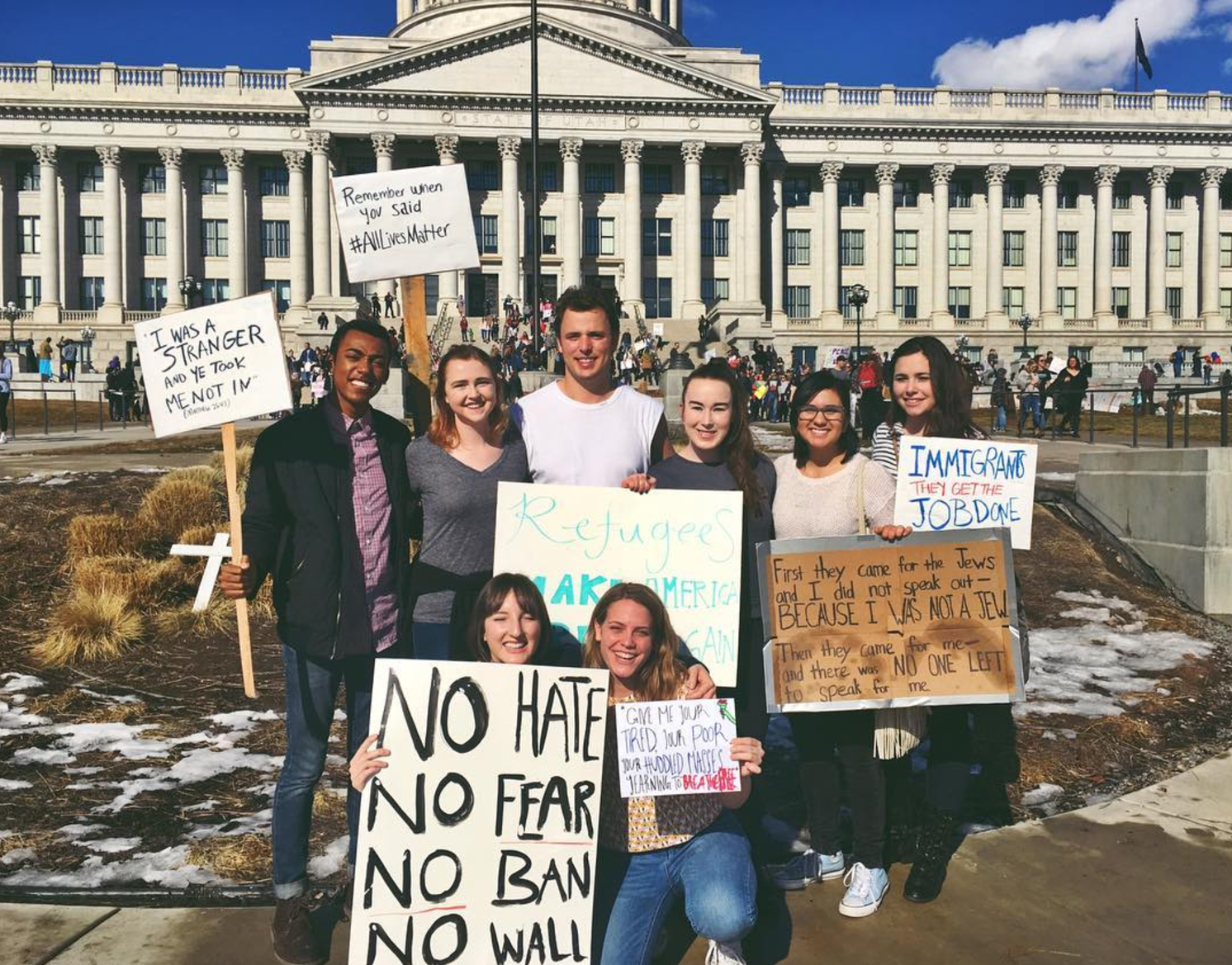
BYU College Democrats Vice President Kwaku El said he would be considered center-left in a more liberal state like California, but here in Utah he thinks some people view him as far-left.
But El sees a shift in political values on campus.
“BYU is way more liberal than people think it is,” El said.
There are more left-leaning Mormons in the millenial generation than in previous generations of Mormons, according to the Next Mormons Survey.
Darren Hawkins, a BYU political science professor and faculty advisor for the BYU College Democrats, surveys his introductory political science class every semester and has found the political leanings of his students are pretty evenly split.
“We have a reputation for being conservative,” Hawkins said. “But I’m not sure that it’s as conservative as people think, or ever has been.”
BYU College Democrats Co-President Ben Bay estimates one-third or even one-half of students on campus are left leaning.
“Because the school is more traditionally conservative, many liberal students that I’ve met feel a little bit isolated. They don’t think there are others around campus like them,” Bay said. “They have to sort of blend in a little better.”
Bay and El have seen more attendance at club events, especially with the 2016 presidential elections. Bay believes Donald Trump’s presidency has influenced more students to get involved.
BYU College Republicans President Madison Barr thinks students can be apathetic about politics because they don’t feel they can make a difference, especially if they are Republican in a conservative state on a majority Republican campus.
Barr and BYU Political Science Department Chair Sven Wilson have seen a division among Utahns in the Republican party between those who support Trump and those who don’t, or at least don’t like what he has to say.
“Trump certainly is not a conservative in the traditional sense, and he’s only very recently been Republican,” Wilson said.
Barr doesn’t personally know many Republicans on campus who supported Trump during the elections. She thinks they may be afraid to speak out on campus because they can sense a lot of Mormons aren’t huge fans of Trump and what he has to say.
“Obviously, the people who are staunch Trump supporters are welcome in our club. We want them to be welcome,” Barr said. “But we also want more Marco Rubio Republicans, and more moderate Republicans, and even liberal Republicans. We want all to be represented.”
BYU College Republicans Secretary Shane Frazier said the club leadership was concerned with the message they were sending to club members and to campus.
“We want to respect the fact that Donald Trump is the head and the face of the Republican Party, but the majority of the leadership did not identify with what he was doing, and we didn’t feel like he represented the Republican Party,” Frazier said.
Frazier said he was uncomfortable revealing who he voted for, but he would not call himself a Trump supporter. “I don’t think that (Trump) has done a very good job.”
Frazier said he supports Trump because he’s the president, and he would have supported Hillary Clinton had she won. But ultimately, he speaks up when he disagrees with what’s happening in the presidency.
“I think it’s important to have a balance between calling out things that are wrong and also recognizing that you have to have some form of respect for the presidency,” Frazier said.
Frazier said he is becoming a more independent voter since the election, and he’s seen a similar shift among his peers. While he still thinks the campus community is generally Republican, he sees students becoming more open-minded.
Political issues and social issues often intersect, as seen in a 2015 study by the Utah Foundation that found Utahns who identify as liberal are 21 percent more likely to support gay rights than moderates and 30 percent more likely to support gay rights than conservatives.
JD Goates is the current president of Understanding Same-Gender Attraction, an unofficial BYU organization that meets at the Provo Library. The organization is politically neutral, but Goates thinks the overall climate on campus is becoming slightly more open-minded in regards to LGBT issues.
“Since I started in 2011, general attitude and understanding and willingness to even talk about LGBT issues among the student body and professors, and in many ways even the administration has increased — but it’s not necessarily where we want it yet,” Goates said.
Goates, Barr and Frazier have all seen pockets of liberalism in the social science majors, but Barr thinks the campus is still majority Republican, although maybe less conservative.
Wilson doesn’t think many students on campus are politically engaged in general. He noted Utah had one of the lowest voter turnout rates in the 2016 general election — 28.8 percent, which tied for third lowest in the country with New York.
Wilson said BYU students’ and Mormons’ lack of political engagement doesn’t mean they don’t care about the issues, but that it’s reflective of the national attitudes.
“Political discussion at BYU, I think, is extremely civil compared to what it is in a lot of other places,” Wilson said. “I think people just don’t like conflict so much.”
Ways to get involved:
BYU College Democrats meet during fall and winter semesters on Tuesdays at 7 p.m.
BYU College Republicans meet during fall and winter semesters on Thursdays at 7 p.m.
The Provo City Council meets Tuesdays at 5:30 p.m. at 351 W Center St.
Provo residents can vote in the Provo City Council elections on November 7, 2017, a nonpartisan election that affects policy many students care about, like student housing.
Provo residents can also vote in the Provo mayoral race on November 7, 2017. Register to vote at vote.utah.gov. Find more information about local elections at voteprovo.com




